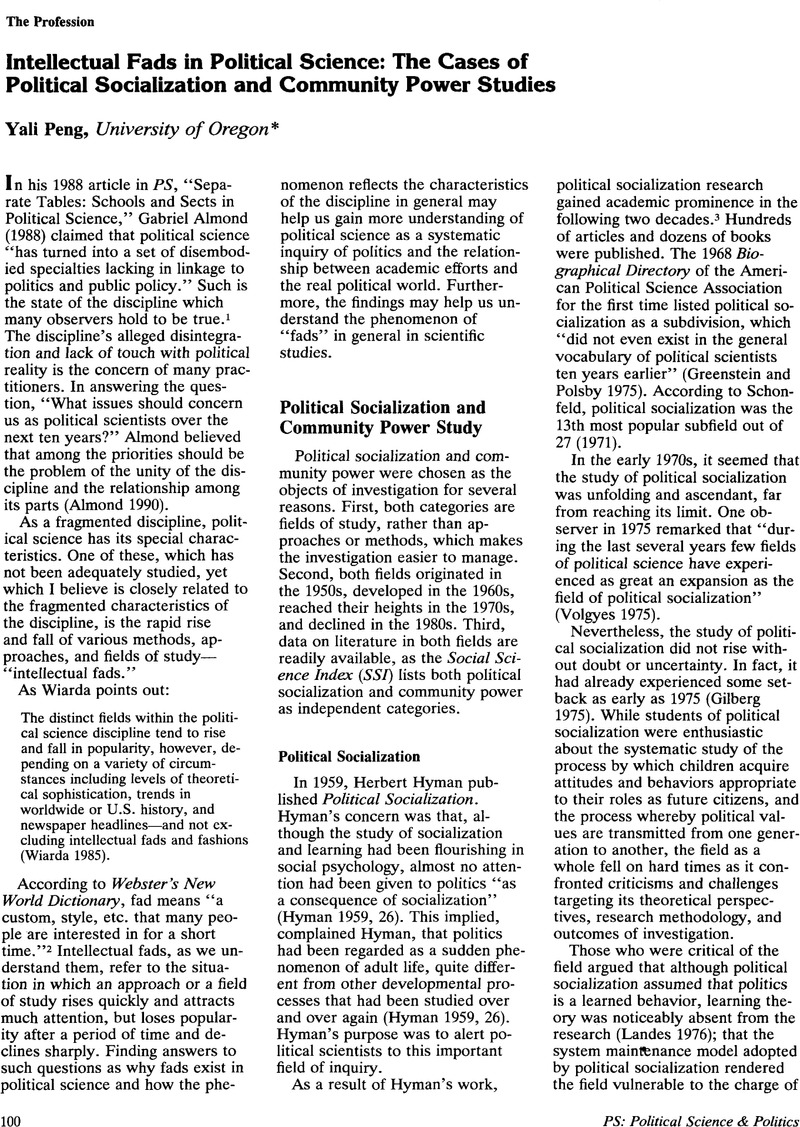Article contents
Intellectual Fads in Political Science: The Cases of Political Socialization and Community Power Studies
Published online by Cambridge University Press: 02 September 2013
Abstract

- Type
- News
- Information
- Copyright
- Copyright © The American Political Science Association 1994
Footnotes
The author would like to thank Professors John Orbell, John Dryzek, and William Mitchell at the department of political science, University of Oregon, for their critical comments and suggestions on the conception and execution of this paper.
References
- 5
- Cited by




